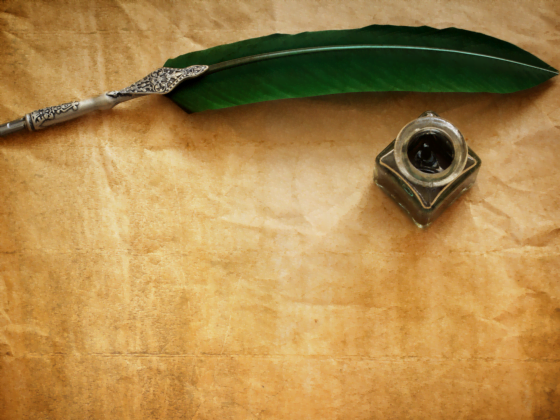QUESTION:
What is the correct exegesis for the first three verses of surah Tahrīm, as we find that Tafsir al-Burhan says that the messenger of Allah had intercourse with Lady Māriyah on the day of Hafsa whilst she was his maid? And when Hafsa found out about this she became angry and confronted him, which made the Messenger feel shy from her and make an oath that he made Māriyah forbidden for himself, which then led to Allah sending down these verses to him.
I sensed the strong presence of Hafsa and Aisha in these narrations because we Muslims reject these types of offensive attributions to the Messenger of Allah.
ANSWER:
In the Name of Allah, the All-Beneficent, the All-Merciful.
May Allah bless Muhammad and his Family and damn their enemies.
This incident has come in different sources and each one of these sources explains the other. The most authentic one has been narrated by Sheikh Al-Qummi (May the pleasure of Allah be upon him)
On the day of Hafsa may Allah curse her, she left her place to fulfil a need and that need has been explained by a narration in Majma’al-Bayan. From our perspective, we don’t take all parts of the content of the narration other than what has been narrated by Al-Qummi which gives a clarification.
Verily the Messenger of Allah divided his days between his wives, and when it was the day of Hafsa, she said to the Prophet that:
I have a need for my father, so he gave me permission to visit him.
So he gave her permission and when she left, he sent for his maid Māriyah the Coptic.
The Messenger of Allah did not oppress her at all or commit a crime against her, and verily it was she who requested permission to go to her father in which the Messenger of Allah gave her permission. After, the Messenger summoned his maid Mariyah, which was his right.
As for how the prophet forbade Mariyah for himself, this was out of the extreme modesty which the Messenger had, and this shows you the extent of how much Hafsa (May the wrath of Allah be upon her) harmed the pure and honourable Messenger of Allah whilst he is the most modest and just of all creation.
How can he not have been just between his wives to the extent of him trying to honour them despite their deviancy which he had to endure? The prohibition of Mariyah was not a divine injunction rather it was only a prohibition in the linguistic sense. He forbade himself a thing which he abstained from and then this Quranic expression came providing a clear proof regarding what the Messenger had to endure in the way of the implementation of justice between his wives in honouring something which she had no right over in divine law, neither was there any importance in pleasing her lest she tries to claim that the Messenger did injustice to her. In reality, she must be the one who pleases the Messenger of Allah.
Therefore, Allah the exalted sent down that verse as a mercy to his Prophet and as compassion to him, and this indicates to us the extent of malice and lowness which was used to hurt him. And here the Divine wisdom was manifested because if there wasn’t a prohibition of the Prophet, then we wouldn’t see the descending of this chapter in the exposure of Aisha and Hafsa. And from here we understand that this prohibition came by the command of Allah for the wisdom of confirming an issue.
Here the narration of Al-Qummi clarifies that the Messenger felt shy although what he did was his right, he is the Master of the first and last of Prophets and the Spring of Modesty.
Also if you finished reading the honourable narration, you’ll see that in that incident from another perspective, there was a test and choice for that hypocrite which she failed, so on her is the curse of Allah, the Angels and all the people.
Ali bin Ibrāhīm Al-Qummī stated that the reason for its revelation was that the Messenger of Allah was in the house of one of his wives, and Mariyah the Coptic was serving him, and it was a day to be in the house of Hafsa, and Hafsa had gone for one of her needs. The Messenger of Allah reached out for Mariyah, and when Hafsa came to know about that, she got angry and faced the Messenger of Allah and said:
O Messenger of Allah! This is my day, and (you should be) in my house, and upon my bed!” So the Messenger of Allah felt embarrassed from it, and he said: “Restrain, for I have denied Mariyah upon myself, and will not tread towards her after this ever, and I shall divulge a secret to you. But, if you were to inform (anyone) with it, then upon you would be the curse of Allah, and the Angels, and the people altogether”. So she said, “Yes, what is it?” He said: “Abu Bakr will be ruling the caliphate after me, then after him would be your father, Umar”. She said: “Who has informed you of this?” He said: “Allah informed me.”
Hafsa informed Ayesha about that, and Ayesha informed Abu Bakr. So Abu Bakr went to Umar and said to him: “Ayesha has informed me of such and such from Hafsa, and I do not place reliance upon her words, so you ask Hafsa.
Umar went to Hafsa and said to her: “What is this which you have informed Ayesha from yourself?’ She denied that and said: I have not said anything from that. So Umar said to her: If this was true, then tell us so that we may hasten this prophecy. She said: Yes, the Messenger of Allah did say that.” Then the four of them assembled (and agreed upon) that they will poison the Messenger of Allah.
Tafsīr Al-Qummī, V.2, p.376
The Office of Sheikh al-Habib





